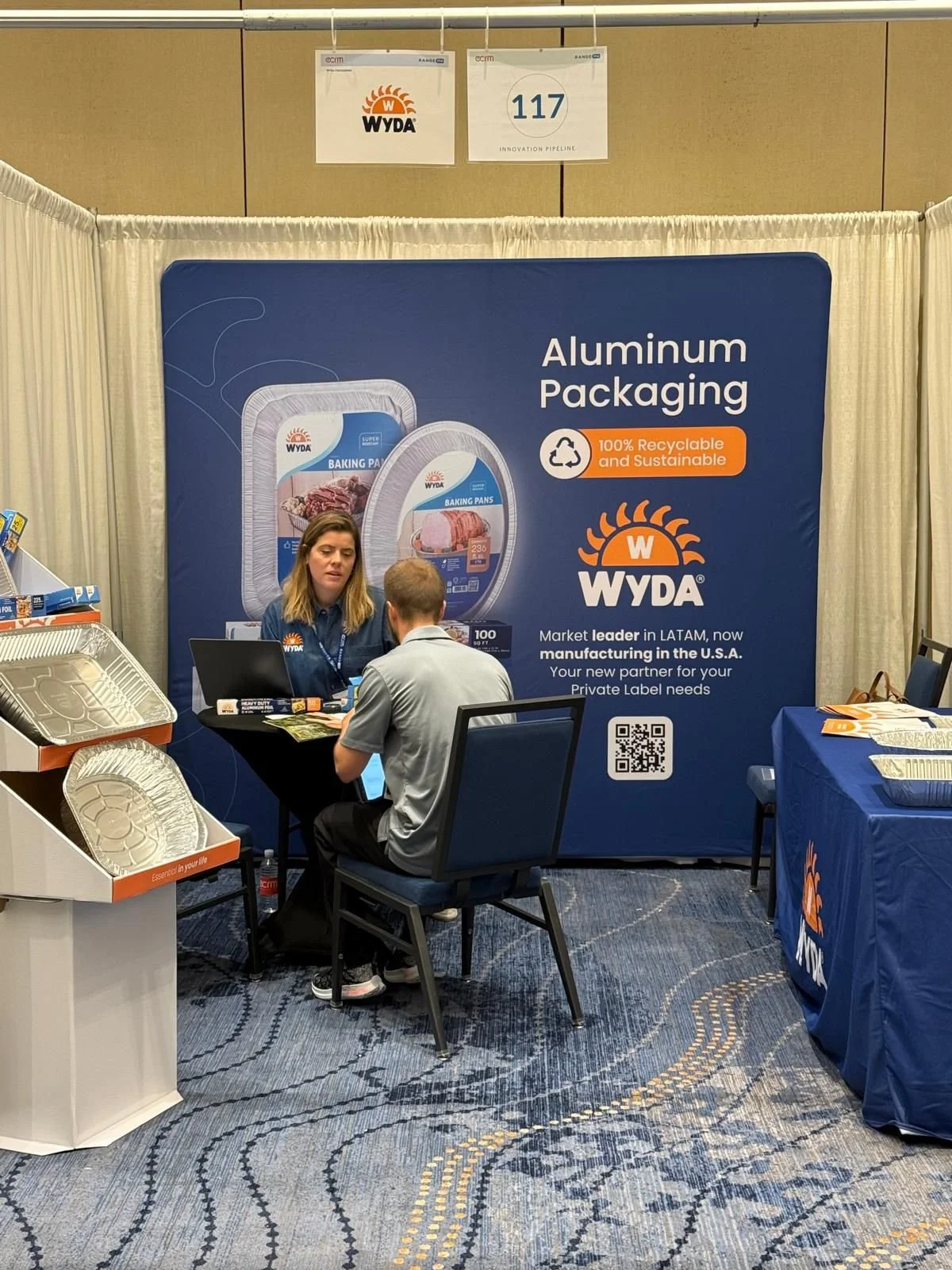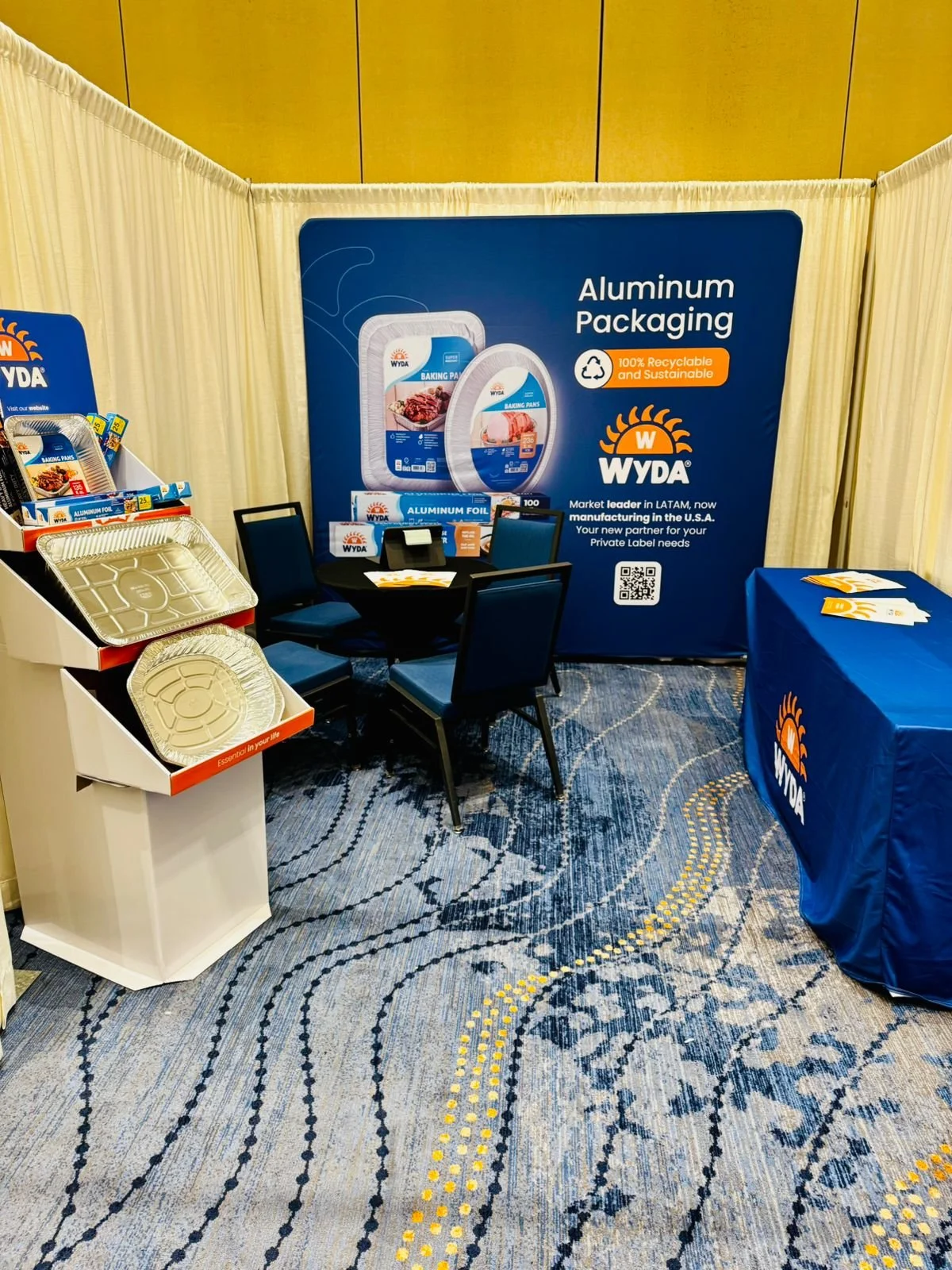Supply Chain Resilience: Insights from ECRM 2025
The landscape of retail packaging requirements is evolving rapidly. At the recent ECRM Household Cleaning, Paper, & Disposable Food Storage Session in Ponte Vedra Beach (May 3-6), our team identified crucial shifts in how retailers are approaching their private label packaging strategies. These insights offer valuable direction for brands looking to strengthen their position in an increasingly competitive market.
"Due to tariff uncertainties, there was significant interest in sourcing products manufactured in the U.S. or with domestic production capabilities," said Celeste Costa, Head of Sales and Marketing at Wyda.
This focus on domestic manufacturing has transformed from a "nice-to-have" feature into a strategic imperative for brands looking to secure and maintain retail partnerships. What's driving this shift? The intersection of two powerful forces: sustainability goals and supply chain risk management.
Another key takeaway from our discussions with retailers was the accelerated focus on private label development. As Costa explains, "Many retailers emphasized plans to expand private label lines, with sustainability and supply chain resilience as major priorities."
This expansion creates significant opportunities for manufacturers who can position themselves as reliable partners in this growth journey. For brands with domestic manufacturing capabilities and sustainable product offerings, this represents a chance to secure long-term partnerships with major retailers looking to differentiate their private label offerings.
““Our recyclable aluminum trays and carbon-neutral foil rolls stood out. Retailers liked the combination of zero-carbon production, recyclable packaging, and the fact that Wyda has U.S.-based production, which aligned perfectly with their current sourcing strategies.””
Perhaps the most unexpected insight from our ECRM discussions was how domestic manufacturing has become integrated into retailers' broader risk management approaches.
Costa observed, "Retailers are placing emphasis on domestic manufacturing as part of their sustainability and risk management strategies. With growing uncertainty around tariffs and international supply chains, U.S.-based production is becoming a major factor in purchasing decisions—even in categories traditionally sourced overseas."
This represents a fundamental shift in how retailers evaluate partnerships. Domestic manufacturing isn't just about sustainability credentials or "Made in USA" marketing—it's now viewed as a strategic asset that reduces volatility and ensures consistent product availability.
What Captivated Retailers: Sustainability Meets Domestic Production
At Wyda's booth, certain products garnered exceptional attention from retail buyers.
"Our recyclable aluminum trays and carbon-neutral foil rolls stood out. Retailers liked the combination of zero-carbon production, recyclable packaging, and the fact that Wyda has U.S.-based production, which aligned perfectly with their current sourcing strategies," Costa shared.
This response validates our strategic investments in both sustainability initiatives and domestic manufacturing capabilities at our Charlotte facility.
Is your brand looking to strengthen its position with retailers through sustainable, domestically-produced packaging solutions? Contact our team to discuss how Wyda's capabilities align with your specific needs.
Ready to explore a partnership? Contact Celeste Costa at celeste.costa@wydapack.com to schedule a consultation.



